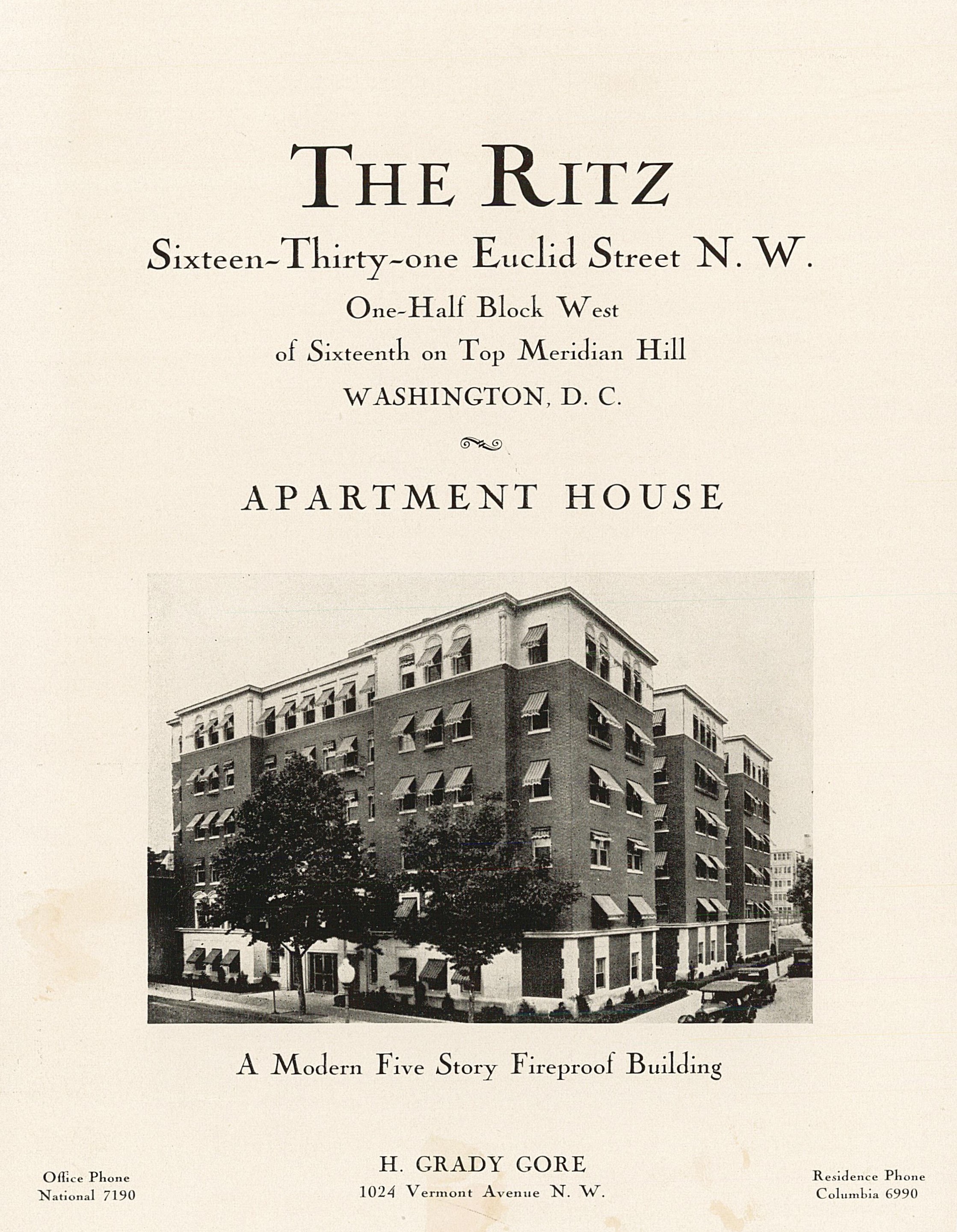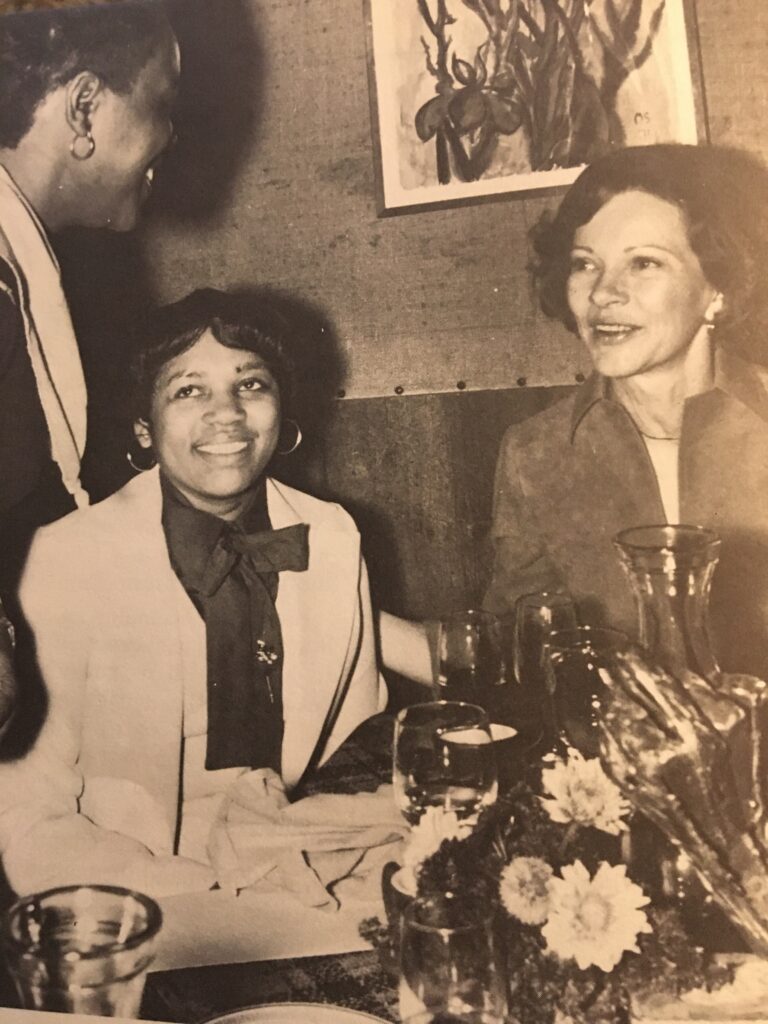For 50 years, Jubilee Housing has both fostered and benefited from the gifts of many exceptional leaders. This February, we are fortunate for the opportunity to celebrate Black History Month at the same time we are celebrating five decades of mission.
“Let’s think of Black History Month the way our nation honors its greatest moments and greatest people,” says Audrey Walker, Jubilee Housing Director of Youth Services and head of the organizing committee for Jubilee’s Annual Black History Month Celebration. “Let us appreciate Black History Month in a similar way — as when our government sets aside a month or day, thereby giving it a special meaning for all Americans. No one should think that Black History is confined to the month of February, when evidence to the contrary appears everywhere and in every month. Black History Month is not a token. It is a special tribute — a time of acknowledgment, of reflection, and inspiration — that comes to life in real and ongoing activities throughout the year.”
Many Black leaders have shaped and fueled Jubilee’s work, and we are honored to share stories of three of those leaders this month — Margaret Wanjui, Rosa Hatfield, and Charletta Cowling — with more stories to come in the year ahead.
50th Anniversary Stories
Rosa Hatfield: From Jubilee Skeptic to Champion
by Shelley Picot
Rosa Hatfield was a Jubilee Housing resident and staff member, as well as an impassioned advocate for her neighbors and others in Washington, DC.
Building Trust
Rosa Hatfield was born in a small town in North Carolina, the daughter of sharecroppers. She was only 17 when she moved to Washington, DC, seeking a brighter future for herself and her son.
When she arrived in Adams Morgan, the 1970s neighborhood bore little resemblance to the one we know today. She found a new home in the Ritz apartment building, then managed by neglectful landlords.

When members of the Church of the Saviour — including Jubilee Housing founders Barbara Moore, Terry Flood, and Carolyn Banker Cresswell — banded together to purchase The Ritz, Rosa and her fellow residents were skeptical.
Barbara’s persistence was legendary. Daily, she knocked on Rosa’s door, pleading for her children to join the Good Shepherd Ministries youth program she had established on the building’s first floor. Each time, Rosa turned her away. But fate intervened one afternoon as Rosa returned from the market to find her children joyfully playing outside with their peers from the program. Rosa’s initial reluctance softened, setting in motion a chain of events that would have a lasting impact on Jubilee’s history and direction.
As genuine connections were deepened, Rosa immersed herself in the youth program as a volunteer. Soon after, Terry Flood’s role with Jubilee changed and created a vacancy for a property manager, Rosa stepped up, embracing the role. Despite not having formal experience in the role, she was a natural fit. By the time 1978 arrived, Jubilee had expanded to five buildings totaling 165 units in Adams Morgan, and Rosa became the community management coordinator for all of them.
“I think Rosa’s trajectory tells a story about trust,” reflects Myra Peabody Gossens, a former Jubilee Housing Board Chair who knew Rosa. “She overcame her distrust and became part of the effort to renovate the buildings. And then her role as a property manager — a job she had never done before — was hugely successful because she both had the trust of her neighbors and fellow residents, and because she trusted Jubilee Housing.”
A Powerful Voice for Equity
Rosa’s leadership extended to advocacy. Described as a force of nature, her passion for truth and justice ignited audiences wherever she went. She would often accompany Jim Rouse — the renowned property developer whose own initial hesitation to loan money for the purchase of The Ritz and The Mozart was overcome by the persistence of Jubilee’s founders — on speaking engagements. Rosa’s vocal support drew others Jubilee’s mission because she spoke deeper truths about the disparities and impact of neglected housing on the lives of her family and neighbors.

Myra recalls a particular event that always stood out to her as an example of Rosa’s powerful and direct way of addressing a room.
In the bustling landscape of Washington DC’s business community, the Jubilee Support Alliance would hold an annual luncheon at the prestigious Willard Hotel. Hosted by business leaders from Carr, Akridge, Donohue Construction, Clark Construction, and others, the gathering brought together the titans of industry, the influencers of real estate, and the movers and shakers of the District’s economy.
“It was usually packed with the who’s who’ in various sectors, from banking to law firms to retail and journalism,” Myra says.
Among the illustrious guests were Jim and Patty Rouse, of which Jim was almost always a speaker. Bob Boulter, Jubilee’s respected leader at the time, welcomed attendees and lent his voice to the proceedings as well.
But, according to Myra, “The most powerful speaker was always Rosa Hatfield, property manager and resident at Jubilee Housing.”
Rosa would take the stage and tell her story: dilapidated, unsafe buildings that had put her family in danger, the impact of neglect by the buildings’ owners and the city.
“I felt like she was indirectly saying to the audience ‘you might know property owners like this, or know people in the DC government who look the other way, or know bankers and lawyers who do nothing about situations like mine,’” says Myra.
But Rosa was not pitching a story of how bad things were for her and so many others. She was telling a story of the outcome and impact of people not taking responsibility for buildings and homes, not caring about people’s lives, and focusing only on making money — decisions that were causing people like her to live in unsafe, unfit, unhealthy buildings.
Then Rosa would talk about Jubilee Housing.
She was clear about how, at first, Jubilee Housing’s founders and partners were not automatically trusted. She said tenants wondered if they too would let them down. But then she talked about the trust that was built through relationships, transparency, and care.
She would close by inviting people to walk with her, to meet her children and her neighbors, to be part of their lives.
“Every luncheon ended with people on their feet applauding,” Myra recounted.
In Rosa’s words, in her unwavering commitment to justice and compassion, lay a rallying cry for all who dared to listen — to be responsible, to be caring, and to stand in solidarity with the community.
Reflections on Rosa
Over the years, Rosa’s commitment to Jubilee deepened, her influence extending beyond the organization to encompass the broader Adams Morgan community. Through her involvement with Jubilee Church, The Potter’s House, and Columbia Road Health Clinic, she wove a tapestry of friendships and service that endeared her to all who knew her.
In the eyes of her daughter Sheila Bias, Rosa was the epitome of selflessness, her unwavering dedication to others a guiding light in good times and bad. Rosa’s passing in 2002 left a void in the community she held dear, but her legacy lives on in the countless lives she touched and the bonds she forged. Today, as we reflect on her contributions to Adams Morgan and Jubilee Housing, we honor Rosa Hatfield and her willingness to speak truth to power.

As we celebrate Black History Month and Jubilee’s 50th anniversary, we are grateful for the incredible Black leaders who have shifted and driven Jubilee’s mission in untold ways. When you read about the three featured this month, know that there are countless more whose work and gifts have had lasting impacts on the Jubilee Housing community, the neighborhood, the city, and beyond.

